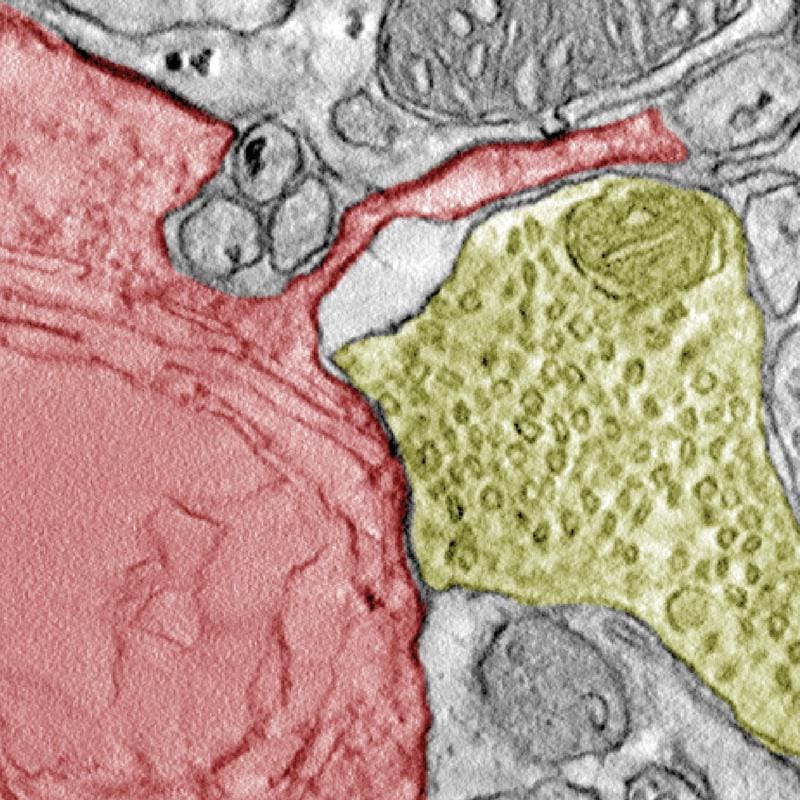Cancer cells: Synapse formation with nerve cells promotes tumor growth
An international team of researchers has made a groundbreaking discovery in cancer biology: cells of small cell lung cancer form functional synapses with neurons to accelerate their growth. This finding, published in the journal “Nature” under the title “Functional synapses between neurons and small-cell lung cancer”, opens up new perspectives for the development of innovative therapies.
Until now, the formation of synapses between cancer cells and neurons was only known in tumors that arise directly from the nervous system. However, the new study shows that small cell lung cancer also uses the body’s neural networks to spread more effectively. By integrating into these networks, the cancer cells can manipulate their environment and gain growth benefits as if they were healthy tissue.

The researchers analyzed genetic data and identified genes involved in synapse formation. In cell cultures and mouse models, they were able to demonstrate that cancer cells establish direct synaptic connections to neurons. Particularly striking was the communication via the neurotransmitters glutamate and GABA, which promotes tumor growth. In the presence of sensory or cortical neurons, the cancer cells multiplied significantly faster, indicating a high adaptability of the tumors.
A central finding of the study is that the interruption of glutamate-mediated signals led to a lower tumor burden and longer survival of the test animals. This approach could form the basis for new drug treatments that can be combined with existing chemotherapies. The results suggest that already available drugs that block neurotransmitters, as well as new approaches to specifically disrupt communication between cancer and nerve cells, offer promising therapeutic opportunities.
The study was conducted by an international team led by scientists from the University of Cologne, Essen University Hospital, Georg-August University GûÑttingen, Heinrich Heine University Dû¥sseldorf and partners in Munich, Antwerp and Stanford University. The research was funded by the German Cancer Aid, the German Research Foundation and the Boehringer Ingelheim Foundation, among others.
The discovery opens up new avenues in cancer treatment, especially to prevent metastasis in the brain. The research team plans to further investigate the molecular mechanisms of these synaptic connections in order to develop optimal treatment strategies and effective therapy combinations.
Original Paper:
Functional synapses between neurons and small cell lung cancer | Nature
Editor: X-Press Journalistenbû¥ro GbR
Gender Notice. The personal designations used in this text always refer equally to female, male and diverse persons. Double/triple naming and gendered designations are used for better readability. ected.




